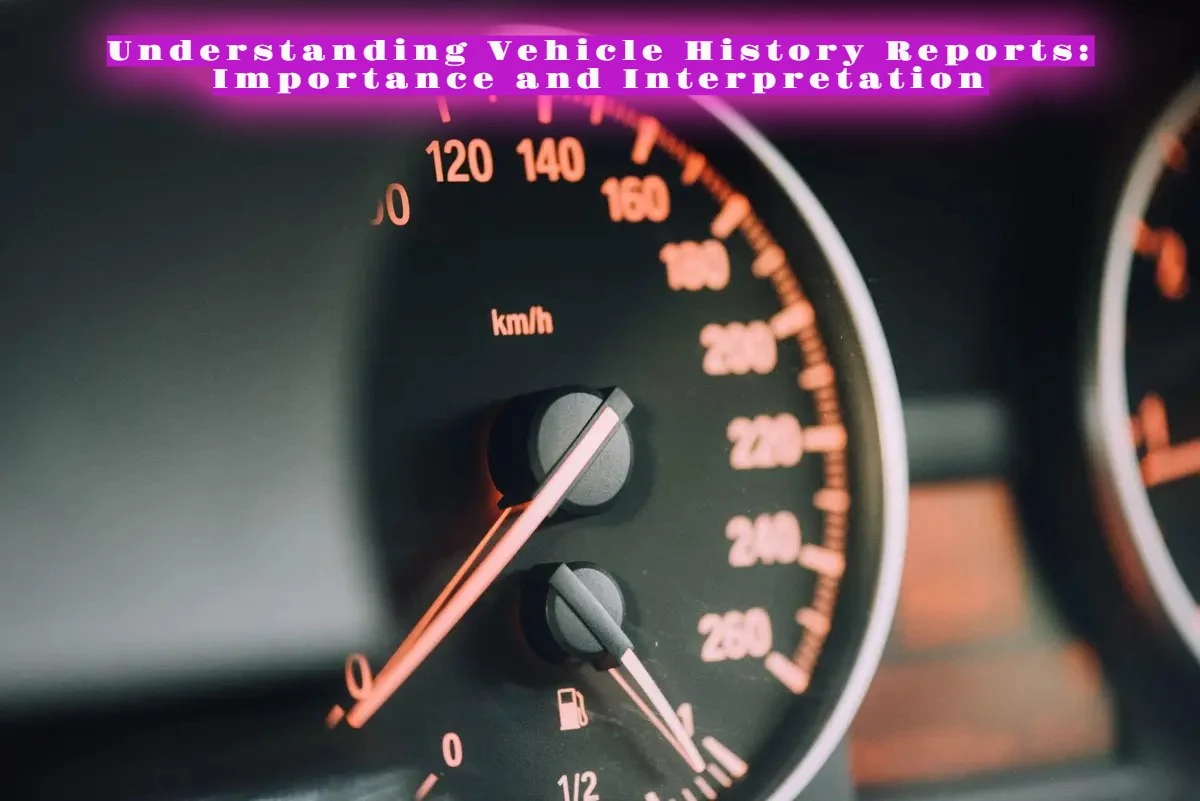In the bustling world of car auctions, a single document can make or break a deal – the vehicle history report. As a buyer, understanding this report’s importance and how to interpret it can be the difference between scoring a brilliant deal and walking away with a money pit.
The vehicle report will also prevent you from buying any stolen, lemon, or hidden problems with the car. After getting the report, you will be able to start negotiating with the seller and buyer according to the value of your car.
What is a Vehicle History Report?
A vehicle history report is an in-depth look into a car’s past. It offers comprehensive details about a vehicle’s life, from its first registration to the last recorded odometer reading. This document serves as an invaluable asset for those seeking to participate in car auctions, such as the popular auction cars in Fort Myers. But what exactly does it entail? Let’s delve deeper.
The Birth of a Vehicle
The vehicle history report begins its chronicle at the birth of the car. It includes the vehicle’s make, model, year, and VIN (Vehicle Identification Number), a unique code used to identify individual motor vehicles.
Ownership Details
The report provides a detailed history of the vehicle’s ownership, including the number of previous owners, the length of ownership, and the states or countries where the car was registered. This can be particularly insightful, as it may help you gauge how well the vehicle was maintained. For example, a car that’s had multiple owners in a short time span might raise a red flag.
Title Information
The report also presents data about the vehicle’s title. This could be a “clean” title, meaning the car hasn’t suffered major damage, or it could be a “salvage” or “rebuilt” title, indicating the vehicle was once deemed a total loss but was subsequently repaired.
Accident History
Perhaps one of the most critical parts of the report is the accident history. This section provides information about any recorded accidents the vehicle was involved in, the severity of the damage, and the parts of the vehicle that were affected.
Service and Maintenance History
The vehicle history report often includes the service and maintenance history of the car. Regular maintenance like oil changes, brake replacements, and tire rotations usually suggest that the car was well cared for.
Mileage Readings
The report tracks the mileage of the vehicle over time. This can help you verify whether the current odometer reading is accurate or if there might be a case of odometer rollback, a fraudulent practice where the mileage is falsely represented to increase the vehicle’s value.
Recall Information
The history report may also include recall information. If the car’s make and model were ever subject to a recall, the report would highlight this, enabling you to confirm whether the necessary repairs were carried out.
Read: Which Vehicles Have The Best AWD System
The Importance of Vehicle History Reports
Transparency and Confidence
A vehicle history report provides transparency, giving potential buyers confidence in their purchasing decisions. It allows you to view any previous accidents, title issues, and service history. By having this knowledge, you can gauge the car’s condition beyond its external appearance and make an informed bid.
Financial Implications
Knowing the full history of a car also has financial implications. A vehicle that has been in an accident or has had major repairs can significantly depreciate in value. On the contrary, a car with a clean history report can retain its value for a longer period, making it a worthy investment.
How to Obtain a Vehicle History Report?
Obtaining a vehicle history report is a simple process that can be done with just a few clicks, and it’s crucial in making an informed decision when buying a car, especially at an auction. Here’s how to do it:
Step 1: Find the VIN (Vehicle Identification Number)
The first step in obtaining a vehicle history report is to find the car’s VIN. This is a unique 17-character code that identifies each vehicle. You can typically find the VIN on the driver’s side where the dashboard meets the windshield or on the driver’s side doorpost. If you’re looking at cars online, the VIN should be provided in the vehicle listing.
Step 2: Choose a Vehicle History Report Provider
There are various providers of vehicle history reports, but the most well-known are Carfax and EpicVIN. Both offer detailed reports but may differ slightly in the information they provide and their pricing.
Before choosing a provider, it’s worth noting that some used car dealerships may offer a free vehicle history report for cars they’re selling. If you’re considering a car from a dealer, it’s worth asking if this is available.
Step 3: Purchase and Review the Report
Once you’ve chosen a provider, you’ll need to enter the VIN on their website and follow the prompts to purchase the report. Reports generally cost between $25 to $40, though there are also options for multiple reports at a discounted rate, which might be useful if you’re considering several vehicles.
After you’ve made your purchase, you’ll be able to view the report instantly. It will provide a detailed look into the vehicle’s history, including any recorded accidents, title issues, past owners, and more. Take your time to thoroughly review the information in the report.
Keep in mind that while a vehicle history report is a powerful tool, it should not replace a comprehensive mechanical inspection.
Conclusion
In the realm of automobile sales, especially in auctions, a vehicle history report is indispensable. It promotes transparency and gives potential buyers a sense of assurance, while also influencing financial considerations. By learning how to comprehend and interpret this report, you’re empowered to confidently stride across the auction floor, whether it’s in Fort Myers or any other popular auction destination.
Remember, being well-informed is your best weapon in the car auction arena. The more knowledge you possess, the higher your odds of securing a car that satisfies your needs, expectations, and budget. Hence, when you’re contemplating a car at an auction, always remember to scrutinize its vehicle history report. It could potentially be the crucial factor leading to your triumph.




